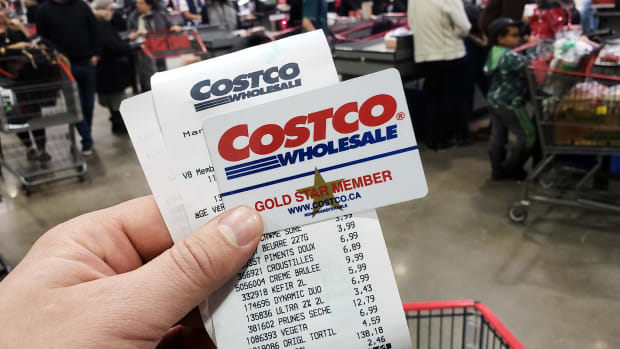Inflation and supply chain issues have cast a dark shadow over retail stocks. Never mind that people still need to eat even when prices go up, Target (TGT) stock has dropped 26.9% over the past month and Walmart (WMT) shares are down 16% during that same time period.
Those numbers reflect macroeconomic concerns not the actual results posted by either company. Still, it has been a very difficult climate for retail stocks with pretty much every major player trading at lower prices.
The reality is that the current market conditions actually benefit the biggest retailers. Walmart and Target have leverage when it comes to the supply chain. Both chains experienced problems -- both with too much inventory and not enough in certain cases -- but these were mild problems due to the huge buying power these chains have.
Costco (COST) has also seen its stock price fall (down 11% over the past 30 days). That has nothing to do with the company's actual results as it reported stellar third-quarter numbers.

Shutterstock
Costco Wins on its Most-Important Numbers
Costco grew its net income to $1.353 billion, or $3.04 per diluted share for the quarter, up from $1.22 billion or $2.75 per diluted share in the year-ago quarter. Net sales also continued to rise climbing 16.3% to $51.61 billion, compared to $44.38 billion reported last year in Q3.
"In terms of comparable sales for the third quarter, for the 12 weeks on a reported basis, the U.S. was better or up by 16.6%; Canada, better by 15.2%; Other International, up 5.7%; and total company, again, up 14.9%," said Senior Vice President Bob Nelson during the Q3 earnings call.
Those numbers are nice, but they're not what actually matters. Sales are a barometer of how happy members are with the warehouse club. When sales go up that's a good sign, but the key numbers for the chain, when you judge its financial health, are membership retention and growth.
"At Q3 end, our U.S. and Canada renewal rate was 92.3%, up 0.3% from the 12 weeks earlier at Q2 end," Nelson said. "And the worldwide rate came in at 90% for the first time in company history, and that's up 0.4% from what we reported at Q2 end."
Costco's true business isn't selling goods from its warehouses, it's selling memberships. Even a slight uptick in its already-high retention rates shows an incredibly healthy business.
"In terms of member counts, number of member households, and cardholders at Q3 end, we ended Q3 with 64.4 million paid households and 116.6 million cardholders, both of those up over 6% compared to a year ago. At Q3 end, our paid executive memberships were 27.9 million, and that's an increase of just about 800,000 during the 12 weeks since Q2 end," Nelson said. "Executive members now represent over 43% of our member base and over 71% of our worldwide sales."
Why Should You Buy Costco Stock?
Costco's business has been set up to thrive during difficult economic times and the warehouse club has been operating in a sort of perfect storm for its business. The chain delivers value for its members, and that's very important at a time when prices have been rising. Costco operates on very small markups, and its members understand that while inflation and supply chain issues may drive prices up, the warehouse club will keep prices as affordable as possible.
In addition, Costco sells gas at many of its locations -- generally at the lowest prices of any gas station. That's a huge driver for membership sales at a time when gas prices have been at or near historic highs.
Costco has been built to thrive no matter what the economic conditions are but inflation (higher prices) should drive even more members to the chain. Once the warehouse club captures those members, it has done a stellar job of holding onto them.







